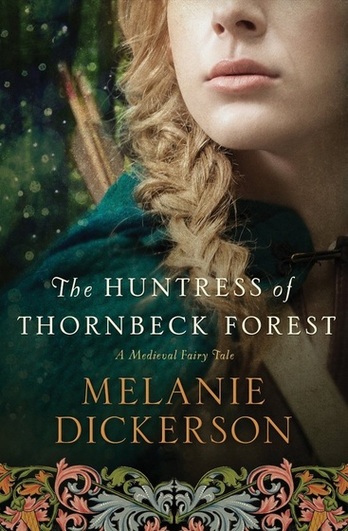 Interview by Brock Eastman Featuring The Huntress of Thornbeck Forest A beautiful maiden who poaches to feed the poor. A handsome forester on a mission to catch her. Danger and love are about to unite in Thornbeck Forest. The margrave owns the finest hunting grounds for miles around—and Odette Menkels spends her nights poaching his deer to feed the hungry orphans of Thornbeck. By day, Odette is a simple maiden who teaches children to read, but by night this young beauty has become the secret lifeline to the poorest of the poor. For Jorgen Hartman, the margrave’s forester, tracking down a poacher is a duty he is all too willing to perform. Jorgen inherited his post from the man who raised him . . . a man who was murdered at the hands of a poacher. When Jorgen and Odette meet at the Midsummer festival and share a connection during a dance, neither has any idea that they are already adversaries. The one man she wants is bound by duty to capture her; the one woman he loves is his cunning target . . . What becomes of a forester who protects a notorious poacher? What becomes of a poacher when she is finally discovered? “Ms. Dickerson deftly captures the flavor of life in medieval Germany in a sweet tale filled with interesting characters that will surely capture readers’ hearts.” —Kathleen Morgan, author of These Highland Hills series, Embrace the Dawn, and Consuming Fire. Across the header of Melanie Dickerson’s website you’ll find a message to what her stories are all about, “Medieval Fairy Tale Retellings.” As a guy this title doesn’t exactly grab my interest, but as a daddy of three girls, it’s all I need to know. A trusted author in the Christian marketplace Melanie continues to develop wonderful characters who take us on adventures never short of excitement. Her books are ones I will trust my daughters to sit down and read and have confidence they’ll be learning strong moral truths as they do. I had the chance to interview Melanie about her latest release The Huntress of Thornbeck Forest. “I have always loved all things Medieval, as it is such a colorful period of history and seems so full of adventure and excitement and romance,” Melanie says of what inspired her to write this tale. She goes on to explain that she’s always been intrigued with castles and knights, secret identities, damsels in distress, and courageous women triumphing in a difficult world. This combination of elements are what makes her writing so powerful and enjoyable. In her previous series each book was based loosely on a fairy tale. For this series she thought it would be fun to base each book on a mash-up of two or more familiar stories. Like myself, she’d always loved the Robin Hood story, she took that story and found a way to combine it with Swan Lake into one exciting, romantic novel. As for the main characters we meet in this story there are two. Odette Menkels was orphaned by the Great Pestilence, a.k.a. the Black Plague, and now lives with her uncle Rutger. Odette has a mind of her own. She remembers how she felt as a very young orphan, left with neighbors who treated her badly and where she often went hungry. She sees the plight of the poor and orphan children who live in Thornbeck and takes matters into her own hands. Good with a bow and arrow, she starts poaching deer from the margrave’s forest to feed the children. And then there is Jorgen Hartman, also orphaned as a child he spent time on the streets where he tried to protect and provide for his little sister, who ultimately died in an accident. He is later taken in and adopted by the margrave’s gamekeeper where he becomes the new forester—the person in charge of catching poachers and bringing them to justice. I asked Melanie to give me the story in three sentences, so here it is, “The Huntress of Thornbeck Forest is about trusting God to give you your dreams and to provide. Sometimes we try to take matters into our own hands, because we think we know what is best and right. But God always has a better plan.” With three books planned for the series I asked for a hint at what will be next in the second book. “The Margrave of Thornbeck lives in a castle in the forest outside the walled town of Thornbeck. He is the leader and ultimate authority in Thornbeck. He has to find a bride, fast, and he wants to make sure she has the same values he has, and that she will not turn out like his mother, who was bitter and hated his father. So he invites ten noble-born ladies from around the country for two weeks. His two-week-long party becomes a series of “tests” to show the character of these ladies. What he does not know is, the one lady he is attracted to is not the daughter of an earl, but she is actually that lady’s maidservant, sent to impersonate the real lady.” The second tale sounds a promising as the first book was to read. If you like fairy tales and medieval fantasy then The Huntress of Thornbeck Forest is for you. Brock: Do you outline the entire book before starting, or do you write as you go and let the characters take control of the story? Melanie: I don’t write an outline, but I know in my mind the gist of the story before I start writing. I know what my characters want, and I know certain key events that have to happen in the story. I also know (sort of) how it should end. This gives me a general map, but I sometimes “discover” my characters’ personalities and backgrounds, as well as many twists and turns of the plot, as I write. Brock: How do you believe this story relates to the lives of readers? Melanie: I believe readers will relate to the characters’ emotions of feeling conflicted—wanting to do the right thing but not always knowing what the right thing is. I believe many readers will relate to the struggle of wanting to get things done, striving and working hard, but seeing very little good come out of their efforts, and having to let go and let God work things out in his perfect way and his perfect timing. And with God, there is always an ultimate happy ending. Brock: What is your favorite genre to write for? Melanie: My favorite genre is historical romance, and Medieval historical romance is what I have the most experience writing. I love romance because it is exciting and a great symbol of God’s love for us, and it’s something we can all relate to wanting and caring about—or most of us! And historicals are just fun. It’s fun to imagine ourselves in another time period, to lose ourselves in a place and time so different from the familiar around us, and yet realize that people are people no matter where or when they grew up. Brock: How many books are planned for this series? Melanie: There are three books in this series. The second book is about the Margrave of Thornbeck, who must find a bride, and it is something of a “Beauty and the Beast meets Princess and the Pea” type of story. And the third book will be a “Goose Girl meets Prince and the Pauper” story. Brock: Any certain research required for the book, or is it all from your imagination? Melanie: I always try to make sure my Medieval details are sound, which involves some research, and I do a bit of research of the fairy tales my books are based on, which mostly entails reading the original fairy tale story and watching the Disney movies with my daughters. ☺ Brock: How do you strike the right balance in your book? Melanie: I like a little action-adventure with my romance. I also try to make sure my story plot is plausible and could have possibly happened in the time and place of my setting. All good fiction involves truth—true-to-life emotions and conflicts and motivations. Brock: What do your readers think about your latest series? Melanie: The fifth book in my current YA series just came last November, The Princess Spy. I get a lot of feedback from readers saying how much they love the way the stories are connected, and they get to see glimpses of the place, Hagenheim, and the characters from previous books. I’m hoping I can duplicate that in this new series about Thornbeck and its residents. Brock: Are you working on the next book in the series? Melanie: Yes, I am currently working on the margrave’s story. Brock: Can you give us a hint at the next book in the series? Melanie: The Margrave of Thornbeck lives in a castle in the forest outside the walled town of Thornbeck. He is the leader and ultimate authority in Thornbeck. He has to find a bride, fast, and he wants to make sure she has the same values he has, and that she will not turn out like his mother, who was bitter and hated his father. So he invites ten noble-born ladies from around the country for two weeks. His two-week-long party becomes a series of “tests” to show the character of these ladies. What he does not know is, the one lady he is attracted to is not the daughter of an earl, but she is actually that lady’s maidservant, sent to impersonate the real lady. Brock: If your book changed as you wrote it, how is it different than how you originally planned? Melanie: The heroine’s guardian, Rutger, underwent a major change during edits, but while I was writing, I was surprised by my hero’s personality and the things he liked to do and even what he was thinking. Originally, I wasn’t quite sure how it would end, so the ending kind of evolved as well. Brock: Were any scenes or characters cut from the book? Can you give an example? Melanie: Truly, my editors, especially Becky Monds, deserve a lot of credit for this book! Becky made tons of great suggestions. During edits, I actually got rid of the heroine’s mother. I also changed her guardian completely. He went from being an evil, manipulative villain, to being a normal guy with good traits and bad traits. I also changed several other characters. Originally my heroine’s best friend Anna was single, and in the rewrites I made her married. I deleted the scene in the original story where Peter asks Anna to marry him. (Sorry, Peter! You’re already married!) Brock: Is it difficult to be accurate to a Biblical perspective or Biblical facts when writing Medieval fiction? Melanie: The Medieval time setting presents its own challenges. In a way, it is helpful that practically everyone in that time period believed in, and feared, God, but most people had not read the Bible, and that makes it difficult for me. I try to be true to the time period, but since I am not Catholic, I am sure my characters sometimes come across as being more Protestant in their thinking. I do make my characters interested in reading the Bible, whenever feasible, and get them a copy of at least part of the Bible. They go to church and no one questions their reverent fear of God, since it’s true to the time period. So there are pros and cons. Personally, I find it freeing to write stories in a period when faith in God was never a question. Everyone believed and trembled. Whether or not they obeyed is another story. Brock: How much leeway do you give yourself with facts in a Historical Genre? Melanie: I don’t write about actual people, except to briefly reference the king, so I don’t have to worry about getting a person’s life story completely accurate to history. Also, I use fictional towns and places within the German section of the Holy Roman Empire, so I can make up those details as well. But I do try hard to make sure my characters aren’t using tools or items that did not exist in the day. The most difficult thing is trying to stay true to the mindset that was prevalent then. Although I think there was more variation than some people think, I do probably err a bit on the side of not making my characters’ attitudes toward women so very Medieval. Brock: Where do you like to write? Melanie: I like to write in my comfy chair in my study when I’m really into the story and know exactly where it’s going. But when I’m struggling to get words down, I like to go to a restaurant, coffee house, or the library to write. I am more focused with the activity and background noise around me, I don’t know exactly why. Brock: Are you a full-time or part-time author/writer? Melanie: I am a full-time writer. Brock: How long does it usually take you to write a single book? Melanie: It has been taking me about four months, and during that time I am also editing previous books. Brock: When did you realize you wanted to become a writer? Melanie: I wanted to be a writer probably around the time I was in the 6th or 7th grade. I started writing stories and passing them around to my friends to read. Brock: What was your favorite book as a teen or child? Melanie: Two of my favorite books as a teen were Gone With the Wind and Pride and Prejudice, so, you know, it was kind of inevitable I would become a historical romance writer. Brock: In what ways does your faith impact how you approach writing? Melanie: I pray. I pray that my stories will bring glory to God, and I pray they will affect my readers in the ways God wants them to. Also, I know Christians ultimately get the victory—every time. We get our happy ending. Anything less than that doesn’t seem realistic to me. Brock: Favorite season? Melanie: Spring! Brock: Do you have a particular drink or food you consume when you write? Like coco, raspberry tea, animal crackers? Melanie: Flavored green tea and dark chocolate! Brock: Favorite color? Melanie: Red Brock: Do you have a favorite Bible verse? Melanie: Ephesians 3:20-21 Now to him who is able to do immeasurably more than all we ask or imagine, according to his power that is at work within us, to him be glory in the church and in Christ Jesus throughout all generations, for ever and ever! Amen. Brock: Favorite pasta dish? Melanie: Lasagna! Brock: Do you listen to music while you write? If so, what are some examples? Melanie: Sometimes I listen to Andrea Bocelli. He’s my favorite because his music is emotional, but he sings in Italian and so I don’t get distracted by the words, since I don’t know any Italian! I also listen to movie soundtracks like Jane Eyre and Last of the Mohicans, and classical music. Brock: Now that you are writing a new series, will you still be continuing your Young Adult fairy tale series? Melanie: Yes, I have a Rapunzel story, The Golden Braid, coming out in November. Even though it will be the 6th book in my YA series, all the books are able to be read as stand-alones, and you won’t feel like you missed something if you haven’t read all the previous books. Brock: How will the new series be different from your Young Adult series? Will your teen readers be interested in reading these new books? Melanie: The main difference is that the new series has slightly older heroines in slightly more mature situations. For instance, in The Huntress of Thornbeck Forest, the heroine is twenty-one years old and although she has a guardian, she isn’t exactly in a parent-child relationship with her guardian. He respects her opinions and her independence. But these books will also be “young adult-friendly” in that they should still be appropriate and relatable for my teen readers. 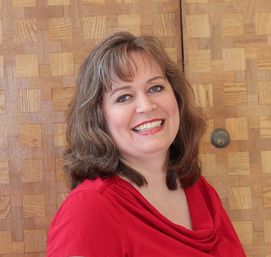 Author Website: MelanieDickerson.com Author Facebook: facebook.com/MelanieDickersonBooks Author Twitter: @melanieauthor
0 Comments
Leave a Reply. |
Follow meArchives
May 2024
Categories
All
|

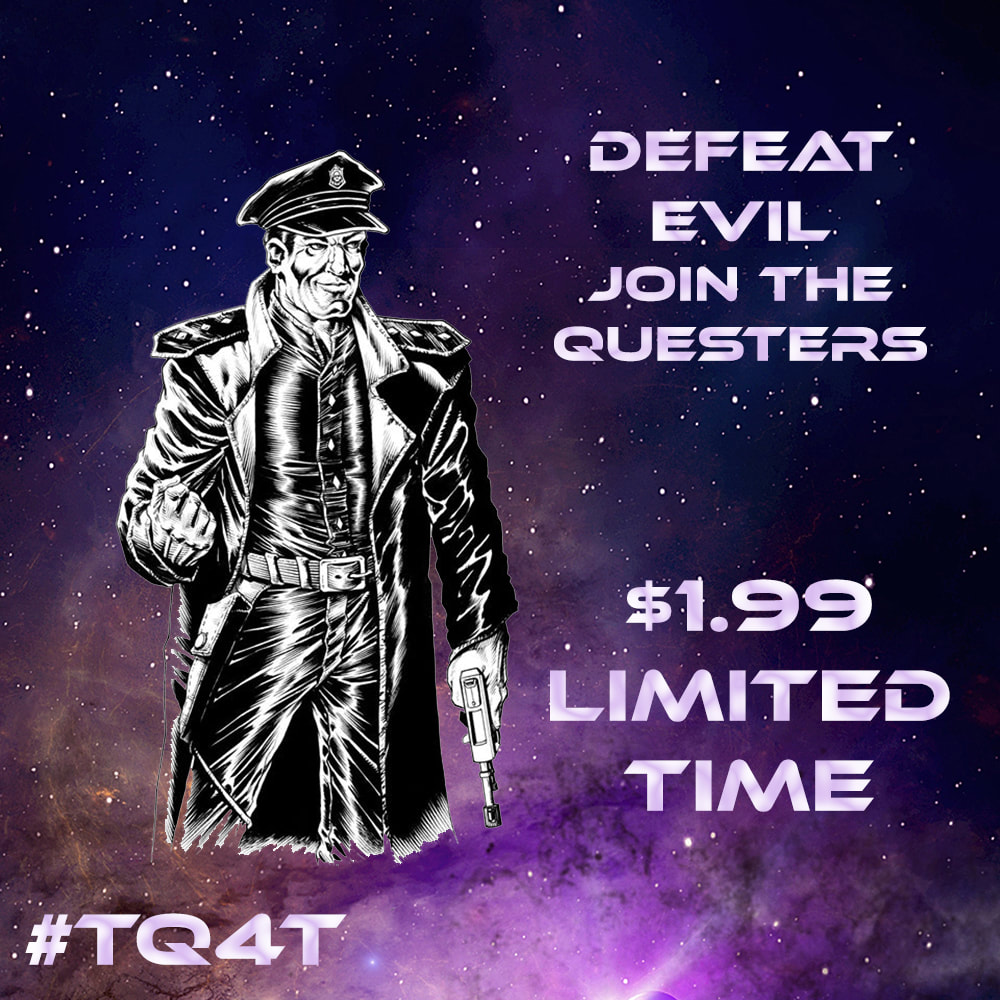
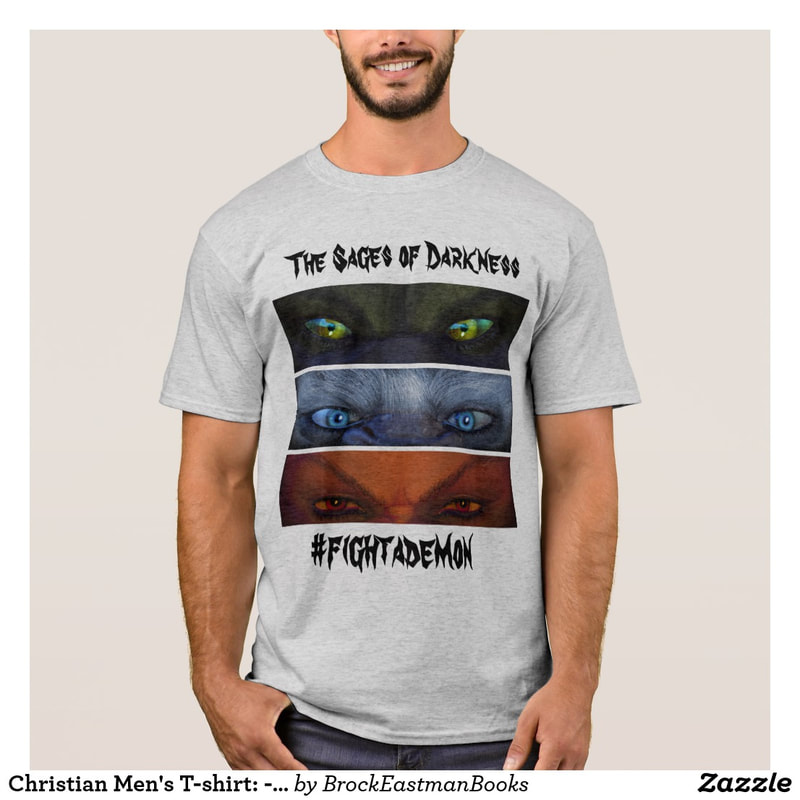

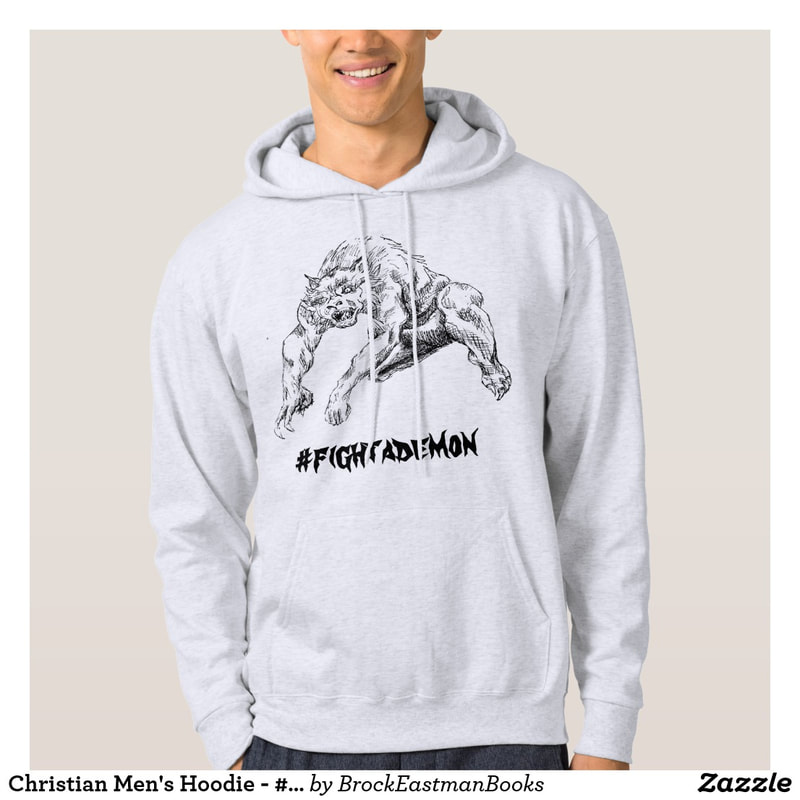

 RSS Feed
RSS Feed